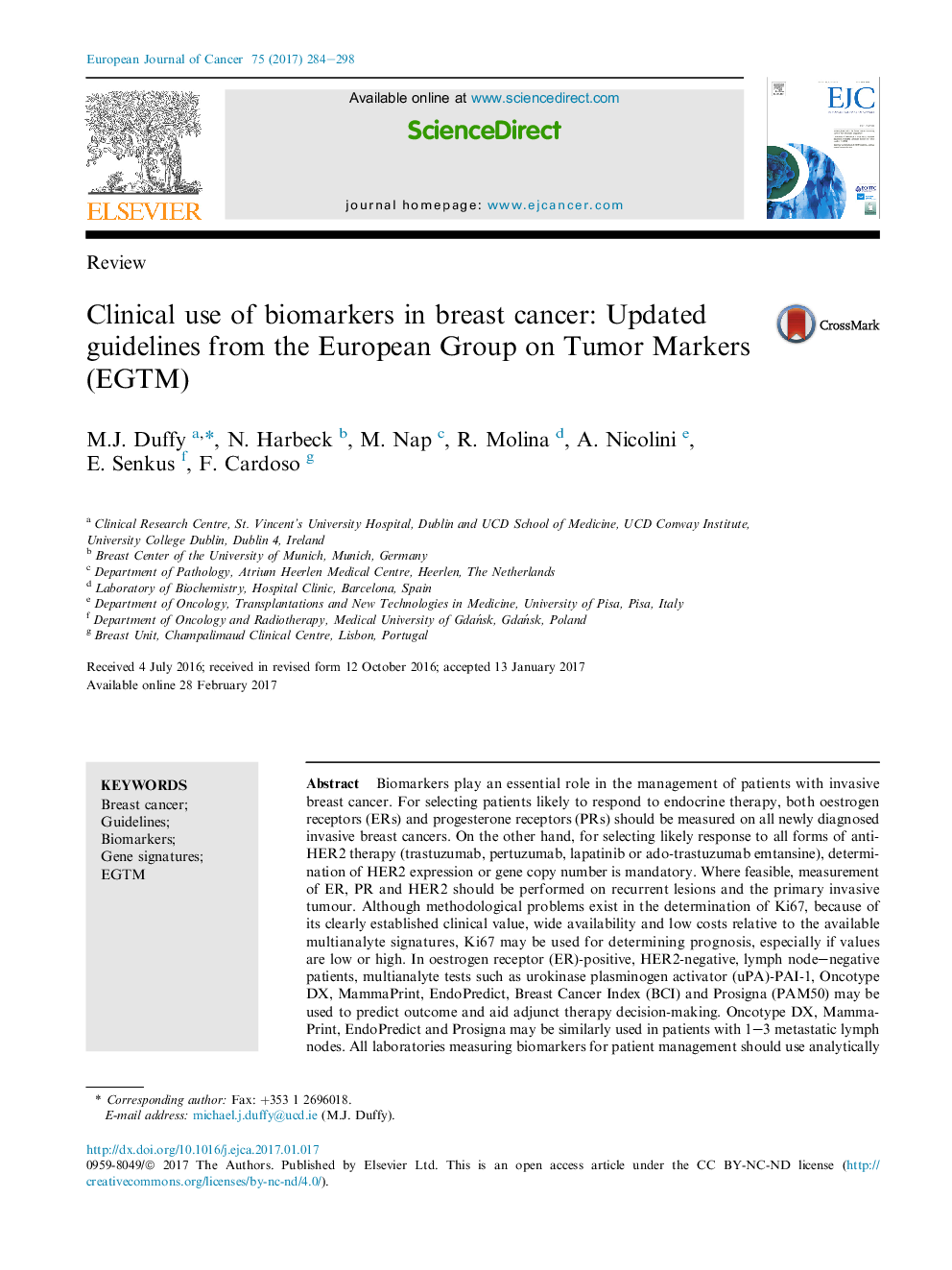| Article ID | Journal | Published Year | Pages | File Type |
|---|---|---|---|---|
| 5526241 | European Journal of Cancer | 2017 | 15 Pages |
â¢For all patients with invasive breast cancer, measurement of ER, PR and HER2 is mandatory.â¢uPA/PAI-1, Oncotype DX, MammaPrint, Prosigna, EndoPredict and BCI may be used for avoiding adjuvant chemotherapy in ER-positive, HER2-negative and lymph node-negative patients.â¢Oncotype DX, MammaPrint, Prosigna and EndoPredict may also be used for avoiding adjuvant chemotherapy in ER-positive, HER2-negative and lymph node-positive patients (1-3 positive nodes).â¢Ki67 may be used for determining prognosis, especially if values are low or high.
Biomarkers play an essential role in the management of patients with invasive breast cancer. For selecting patients likely to respond to endocrine therapy, both oestrogen receptors (ERs) and progesterone receptors (PRs) should be measured on all newly diagnosed invasive breast cancers. On the other hand, for selecting likely response to all forms of anti-HER2 therapy (trastuzumab, pertuzumab, lapatinib or ado-trastuzumab emtansine), determination of HER2 expression or gene copy number is mandatory. Where feasible, measurement of ER, PR and HER2 should be performed on recurrent lesions and the primary invasive tumour. Although methodological problems exist in the determination of Ki67, because of its clearly established clinical value, wide availability and low costs relative to the available multianalyte signatures, Ki67 may be used for determining prognosis, especially if values are low or high. In oestrogen receptor (ER)-positive, HER2-negative, lymph node-negative patients, multianalyte tests such as urokinase plasminogen activator (uPA)-PAI-1, Oncotype DX, MammaPrint, EndoPredict, Breast Cancer Index (BCI) and Prosigna (PAM50) may be used to predict outcome and aid adjunct therapy decision-making. Oncotype DX, MammaPrint, EndoPredict and Prosigna may be similarly used in patients with 1-3 metastatic lymph nodes. All laboratories measuring biomarkers for patient management should use analytically and clinically validated assays, participate in external quality assurance programs, have established assay acceptance and rejection criteria, perform regular audits and be accredited by an appropriate organisation.
